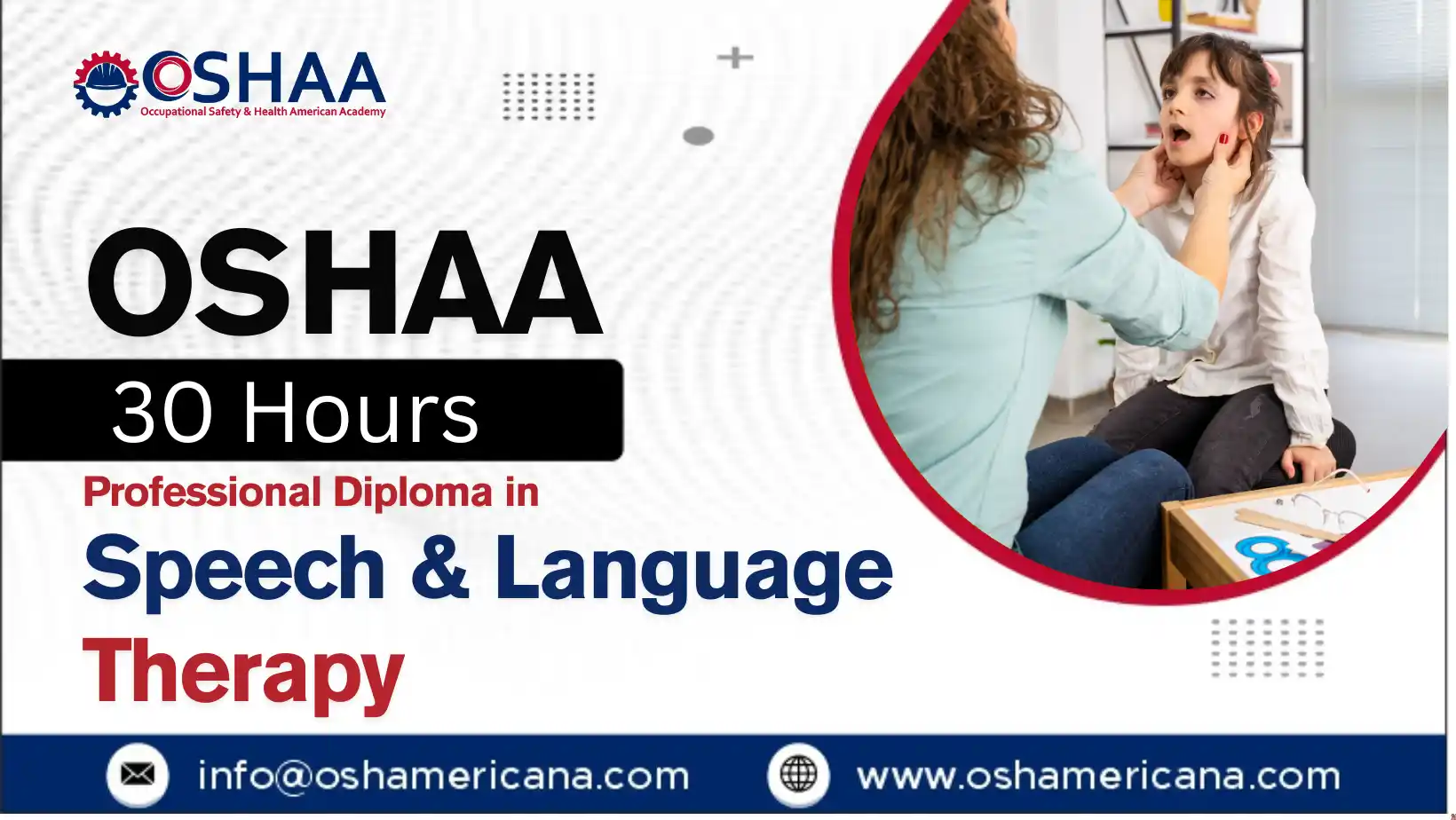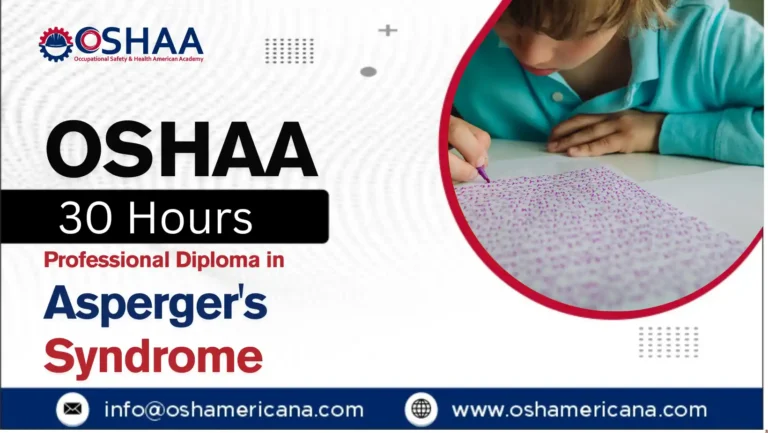The OSHAA 30-Hours Professional Diploma in Speech and Language Therapy is a focused and professionally accredited qualification designed for those seeking to develop practical and theoretical skills in the field of communication disorders. This diploma equips participants with a foundational understanding of speech, language, and communication needs across a wide range of age groups and conditions, aligning with UK professional and clinical standards.
Communication difficulties can impact social interaction, education, and overall quality of life. This course empowers participants to support individuals with speech and language challenges more effectively, whether working in healthcare, education, social care, or community-based settings. By integrating both academic insight and applied skills, the programme supports meaningful professional development for those working alongside speech and language specialists or in related support roles.
Participants will gain valuable tools to facilitate inclusive communication, promote client engagement, and contribute to individual development and wellbeing. Emphasis is placed on understanding diverse communication needs, applying supportive strategies, and working effectively as part of multidisciplinary teams.
This diploma is particularly beneficial for those already working in care, education, or allied health professions who wish to broaden their knowledge and skill set. It also serves as a strong foundation for participants considering further study or professional training in speech and language therapy.
Accredited by OSHAA, the course offers a structured, high-quality learning experience that enhances professional credibility and provides a competitive edge in communication-focused roles. Participants benefit from practical insights, reflective learning opportunities, and up-to-date knowledge informed by current best practice in the field.
OSHAA 30-Hours Professional Diploma in Speech and Language Therapy
Study Units
Learning Outcomes
Introduction to Speech, Language, and Communication Needs (3 Hours)
- Define key concepts related to speech, language, and communication
- Recognise the broad range of communication needs in children and adults
- Understand the impact of communication difficulties on daily life and development
- Identify common signs of communication challenges across different settings
Typical Language Development Across the Lifespan (3 Hours)
- Understand the stages of typical language development from infancy to adulthood
- Recognise age-appropriate communication milestones
- Identify variations in communication styles across the lifespan
- Apply knowledge of development to distinguish between typical and atypical patterns
Speech Sound Disorders and Articulation Difficulties (5 Hours)
- Identify common types of speech sound disorders, including articulation and phonological issues
- Understand the causes and characteristics of speech production difficulties
- Recognise the impact of speech sound disorders on intelligibility and social interaction
- Explore techniques and tools used to support articulation and speech clarity
Language Impairments: Identification and Support Strategies (5 Hours)
- Distinguish between receptive and expressive language impairments
- Identify signs of language delay or disorder in children and adults
- Understand the principles of language support and intervention planning
- Develop strategies to support language development in educational and care contexts
Communication Challenges in Autism and Neurodiversity (3 Hours)
- Understand how autism and neurodiverse conditions affect communication
- Identify common communication profiles associated with autism
- Explore supportive approaches to enhance interaction and understanding
- Promote inclusive communication strategies tailored to individual needs
Assessment Techniques in Speech and Language Support (4 Hours)
- Understand the purpose and principles of speech and language assessment
- Explore commonly used informal and observational assessment methods
- Learn how to document communication strengths and needs effectively
- Apply assessment findings to guide appropriate support planning
Intervention Planning and Therapy Approaches (5 Hours)
- Explore a range of evidence-based intervention models in speech and language therapy
- Understand how to set realistic and measurable therapy goals
- Identify resources and techniques suitable for individual and group settings
- Learn how to adapt interventions to suit age, ability, and context
Multidisciplinary Collaboration in Communication Support (2.5 Hours)
- Recognise the roles of different professionals involved in communication support
- Understand the importance of shared goals and coordinated care
- Develop effective communication strategies for working within teams
- Promote best practices for collaborative, person-centred support
Course Benefits – OSHAA 30-Hours Professional Diploma in Speech and Language Therapy
- Equips participants with a strong foundation in understanding and supporting speech, language, and communication needs across various age groups
- Enhances the ability to recognise and respond to a wide range of communication difficulties, including speech sound disorders and language impairments
- Strengthens practical knowledge of assessment techniques and therapy approaches used in speech and language support
- Improves confidence in applying inclusive communication strategies in educational, clinical, and care-based settings
- Supports participants in working effectively with individuals with autism and other neurodiverse conditions
- Encourages reflective practice and ethical decision-making aligned with professional standards
- Builds collaborative skills necessary for multidisciplinary teamwork in speech and language support environments
- Increases professional credibility with an internationally recognised OSHAA-accredited qualification
- Provides valuable preparation for those seeking to progress into further training or specialised roles within speech and language services
- Promotes better outcomes for individuals with communication needs by empowering participants with up-to-date knowledge and practical intervention skills
The OSHAA 30-Hours Professional Diploma in Speech and Language Therapy is ideal for individuals working in or aspiring to enter roles that support communication development and intervention. It is especially suited to:
- Teaching assistants, SEN support staff, and educators supporting learners with speech and language needs
- Care workers and healthcare assistants involved in the daily support of individuals with communication difficulties
- Early years practitioners seeking to understand and promote healthy communication development
- Allied health professionals and support workers in rehabilitation, community, or clinical environments
- Individuals interested in pursuing a future career in speech and language therapy or related disciplines
This course is designed for participants who wish to strengthen their understanding of communication disorders, apply evidence-based support strategies, and make a meaningful difference in the lives of those with speech and language challenges.







